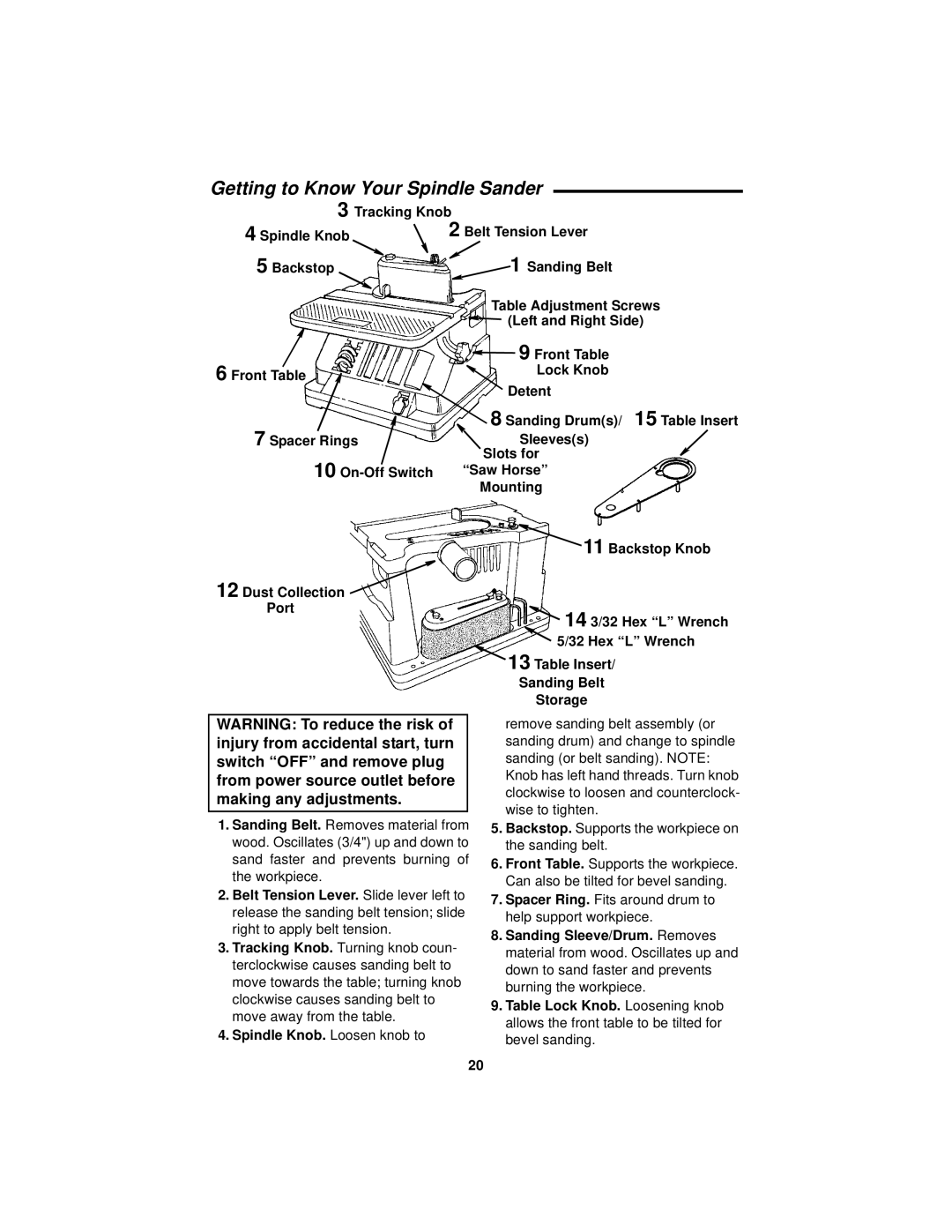
Getting to Know Your Spindle Sander
3 Tracking Knob
4 Spindle Knob | 2 Belt Tension Lever |
5 Backstop | 1 Sanding Belt |
| Table Adjustment Screws |
| (Left and Right Side) |
6 Front Table | 9 Front Table |
Lock Knob | |
| Detent |
7 Spacer Rings | 8 Sanding Drum(s)/ 15 Table Insert |
Sleeves(s) | |
10 | Slots for |
“Saw Horse” | |
| Mounting |
12 Dust Collection ![]() Port
Port
WARNING: To reduce the risk of injury from accidental start, turn switch “OFF” and remove plug from power source outlet before making any adjustments.
1.Sanding Belt. Removes material from wood. Oscillates (3/4") up and down to sand faster and prevents burning of the workpiece.
2.Belt Tension Lever. Slide lever left to release the sanding belt tension; slide right to apply belt tension.
3.Tracking Knob. Turning knob coun- terclockwise causes sanding belt to move towards the table; turning knob clockwise causes sanding belt to move away from the table.
4.Spindle Knob. Loosen knob to
11 Backstop Knob
14 3/32 Hex “L” Wrench
![]() 5/32 Hex “L” Wrench
5/32 Hex “L” Wrench
13 Table Insert/
Sanding Belt
Storage
remove sanding belt assembly (or sanding drum) and change to spindle sanding (or belt sanding). NOTE: Knob has left hand threads. Turn knob clockwise to loosen and counterclock- wise to tighten.
5.Backstop. Supports the workpiece on the sanding belt.
6.Front Table. Supports the workpiece. Can also be tilted for bevel sanding.
7.Spacer Ring. Fits around drum to help support workpiece.
8.Sanding Sleeve/Drum. Removes material from wood. Oscillates up and down to sand faster and prevents burning the workpiece.
9.Table Lock Knob. Loosening knob allows the front table to be tilted for bevel sanding.
20
